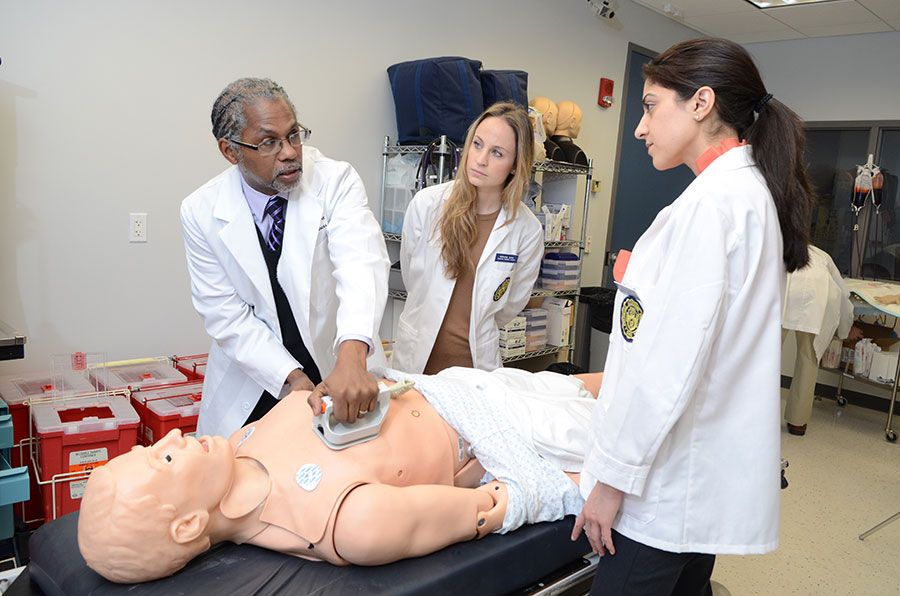
Health, Justice and Society is a course that introduces entering physician assistant (PA) students to social determinants of health, elements of cultural competency, and ethics in preparation for patient care. Taught by Howard Straker, M.P.H., PA-C, assistant professor of physician assistant studies at the George Washington University School of Medicine and Health Sciences (SMHS), and Paige McDonald, Ed.D., director of the health sciences core curriculum and visiting assistant professor of clinical research and leadership at SMHS, the course received a makeover with a grant from the university.
The $5,000 grant was funded through the Online Learning Initiative (OLI) from GW’s Teaching & Learning Collaborative. Along with the funding, the OLI provided training, technical expertise, and services in online curriculum design. This grant “will also benefit from the research we are conducting on student satisfaction and engagement with the blended learning model in a health profession course,” Straker said.
The revised course reduced the amount of time students spend in the classroom from previous years and increased student interaction in smaller settings. “It was designed with the concepts of reflective practice,” said Straker. General readings, video, online mini lectures, and online assignments, such as discussion boards or Wikis, precede face-to-face sessions, followed by individual reflections.
Previously, the course met in a traditional lecture format with a few small group discussion sessions. Last year, the course was revised to be more interactive using a blended learning format. Blended learning integrates online with traditional face-to-face class activities in a planned pedagogical manner, where a portion of face-to-face time is replaced with online activity.
The course design promotes the students’ ability to engage in future reflective practice, explains Straker. It will help PAs hone their skills using technology and interacting through online media for collaboration with future practitioners to solve complex problems. Ultimately, “the multiple opportunities for interaction, particularly in small groups, promote a community of practice among new students entering the PA Program,” McDonald said.


